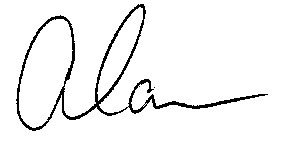September is a transformative time on the University of Windsor campus. All of our grads will remember that sense of optimism that comes with the beginning of a new season and the opportunity to make the most of a fresh start.
Autumn is the perfect time to set goals, work towards fulfilling them and, as a result, have a direct and lasting impact on the betterment of life in our community and on our campus. That spirit is vividly captured on the pages of the fall edition of VIEW.
You’ll meet Kelly Carr, a PhD student whose research examines how people with disabilities can combat the negative impressions that often follow them throughout their lives, through physical exercise and meaningful employment.
“Showcasing the strengths in people with disabilities can change social perceptions of what disability is,” says Kelly, a kinesiology grad student, who is also working closely with Community Living Essex County on her research.
Logan Carmichael BA ’17 is a great example of the impact that UWindsor grads can have on current and future students.
Logan has talked with many alumni over the past few years as a caller with the University of Windsor’s annual Alumni and Friends Phonathon. The Phonathon, a key part of the Annual Giving Program (AGP), takes place each September with student callers reaching out to thousands of UWindsor alumni and friends.
The value of the AGP is something that Logan knows of first-hand: “During my time at the university, I received Political Science and Entrance scholarships funded through the AGP. I was incredibly fortunate to receive these scholarships.”
Logan was also the 2017 President’s Medal winner as the graduating student who made an outstanding contribution to campus activities while maintaining a superior academic record.
On campus, Dr. Dusty Johnstone, head of the University of Windsor’s Sexual Misconduct Prevention Office, is providing confidential support, referrals and assistance to individuals who have experienced sexual misconduct. She can also assist them in making informed choices and in navigating relevant institutional and community processes.
“We’re dealing with a complex social problem,” she says. “This is a co-ordinated effort across campus.”
Certainly, if we cannot make university campuses safer for women, we cannot claim to be here equally for everyone, regardless of their religion, skin colour, nationality, gender identity, or ability. And it is our responsibility to be able to make that claim.
The data show that, by having more people trained in how to watch out for the danger signs that precede sexual assault, we can make university campuses safer for women. Along with the University’s Bystander Initiative, the Sexual Misconduct Prevention Office is helping to achieve that goal.
So welcome everyone to the fall 2017 edition of VIEW. As you read it, I hope you are inspired by the stories of how the University of Windsor is striving to fulfil its mission of enabling people to make a better world.

Alan Wildeman
President and Vice-Chancellor